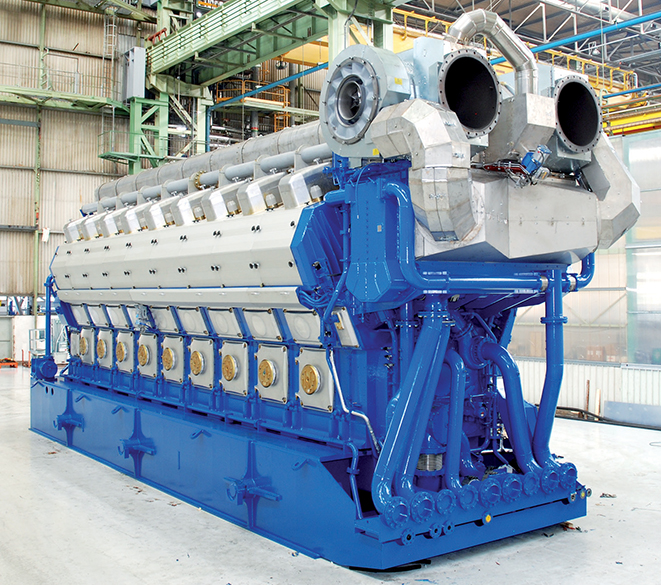Discover a Vast Array of Engines for Every Lorry and Purpose
The automotive landscape is progressively complex, with a varied array of engine kinds made to satisfy details efficiency and efficiency demands across different automobile groups. Additionally, heavy-duty engines offer the demands of job cars, while environmentally friendly options are getting grip in the search of sustainable transportation.
Kinds Of Automotive Engines
Automotive engines can be categorized right into numerous unique kinds, each designed to fulfill specific efficiency and performance needs. The most usual groups consist of internal combustion engines, electric engines, and crossbreed systems.

Electric engines, on the various other hand, operate on electrical power kept in batteries, offering instantaneous torque and no exhausts. These engines are becoming increasingly preferred due to developments in battery technology and the growing focus on sustainability.
Hybrid systems combine both internal burning and electric engines, enabling automobiles to enhance gas performance and decrease exhausts by perfectly changing between power resources. Each engine type presents its drawbacks and benefits, affecting aspects such as lorry layout, intended use, and market demand. Understanding these differences is essential for makers and consumers alike when choosing the proper engine for their certain demands.
Efficiency Engines for Sports Cars
Performance engines for cars are particularly engineered to supply enhanced agility, power, and rate, establishing them in addition to basic vehicle engines. These engines typically make use of innovative innovations such as turbocharging, supercharging, and variable valve timing to make best use of effectiveness and responsiveness.
Generally, efficiency engines are created with greater compression proportions, which permit for greater energy removal from fuel. This results in outstanding horse power and torque numbers, making it possible for rapid velocity and higher top speeds. Moreover, the lightweight products utilized in these engines, such as aluminum and carbon fiber, contribute to lowered overall vehicle weight, improving handling and maneuverability.
Engine configurations like V6, V8, and even hybrid systems are common in performance cars, each offering special advantages in regards to power shipment and driving characteristics. The adjusting of these engines is likewise vital; lots of makers optimize the engine administration systems to provide an electrifying driving experience, typically consisting of sport modes that readjust throttle reaction and gear changes.
Reliable Engines for Daily Commuters
In the world of everyday travelling, reliable engines play an essential role in enhancing gas economic situation and minimizing emissions while giving trusted efficiency. As city populaces expand and ecological worries magnify, the need for lorries geared up with effective powertrains has risen.
Modern engines created for everyday travelers typically include technologies such as turbocharging, direct fuel injection, and crossbreed systems. Turbocharging boosts engine effectiveness forcibly even more air into the combustion chamber, permitting smaller sized, lighter engines that do not endanger power result. Direct fuel shot enhances gas atomization, leading to far better burning and increased performance.
Crossbreed engines, combining inner combustion with electrical power, further boost fuel economy, especially in stop-and-go web traffic, where typical engines can endure from inadequacies. Electric motors aid throughout velocity and can run separately at low rates, decreasing general fuel usage.
Additionally, innovations in engine management systems and lightweight materials contribute significantly to reliable engine style. By concentrating on performance, sturdiness, and environmental sustainability, producers continue to provide engines that not only fulfill the demands of daily travelling however also straighten with international initiatives to decrease carbon impacts.
Heavy-Duty Engines for Job Automobiles
Heavy-duty engines for work automobiles are routinely crafted to supply outstanding torque and reliability under demanding problems. These engines are designed to perform in environments where traditional engines might falter, such as construction sites, logging operations, and agricultural settings. The main focus of durable engines is their capacity to create high levels of power while maintaining longevity over prolonged periods of operation.
Commonly, sturdy engines make use of innovative materials and durable building techniques to withstand the rigors of heavy workloads. Attributes such as reinforced cyndrical tube blocks, improved cooling systems, and advanced fuel shot technologies add to their performance. These engines typically run at lower RPMs, which helps to maximize fuel efficiency while giving the essential power for towing and hauling.
In addition to mechanical toughness, heavy-duty engines are usually furnished with innovative electronic control systems (ECUs) that take care of performance, discharges, and diagnostics. This combination allows for far better tracking and upkeep, ensuring that job vehicles stay effective my blog and functional.
Ultimately, heavy-duty engines are an important component in the efficiency of numerous sectors, supplying the needed power and reliability to tackle the hardest of tasks.
Eco-Friendly Engine Options
The growing emphasis on sustainability has actually caused the development of eco-friendly engine options that prioritize minimized discharges and improved gas efficiency. These engines are made to reduce the environmental effect of lorries while still delivering the performance and dependability expected Discover More Here by consumers.
Amongst the most notable environmentally friendly choices are electrical and hybrid engines. Crossbreed engines integrate standard inner combustion engines with electrical propulsion, permitting minimized fuel intake and reduced greenhouse gas emissions. Electric engines, on the other hand, run totally on battery power, producing no tailpipe emissions and adding to cleaner air quality.
One more promising advancement is the advancement of biofuel engines, which utilize sustainable sources, such as plant products, to power vehicles (Engines For Africa). By utilizing biofuels, these engines can minimize dependence on nonrenewable fuel sources and lower overall carbon impacts

As the auto sector advances, environmentally friendly engine choices will play a critical duty in driving the shift towards even more sustainable transport solutions.
Final Thought
From high-performance engines that enhance sporting activities vehicle abilities to reliable versions focusing on gas economic situation for daily commuters, each kind offers a specific feature. Durable engines provide to robust work automobiles, while green choices, such as electrical and web link biofuel engines, advertise sustainable transportation.
